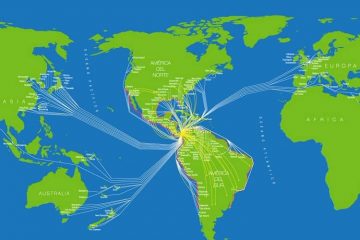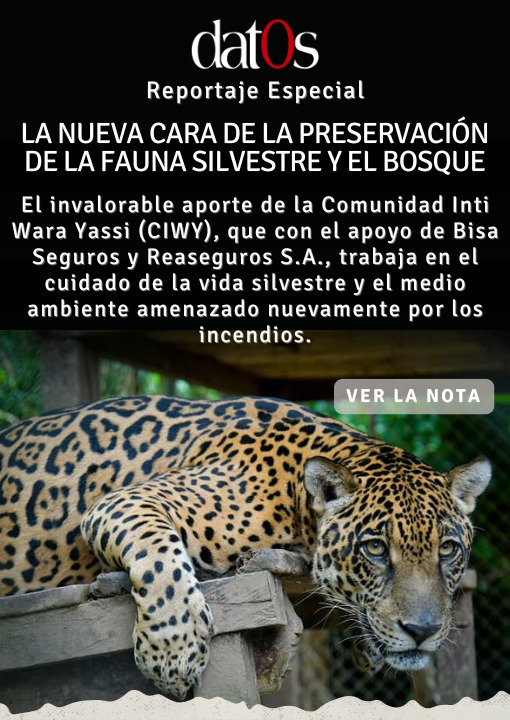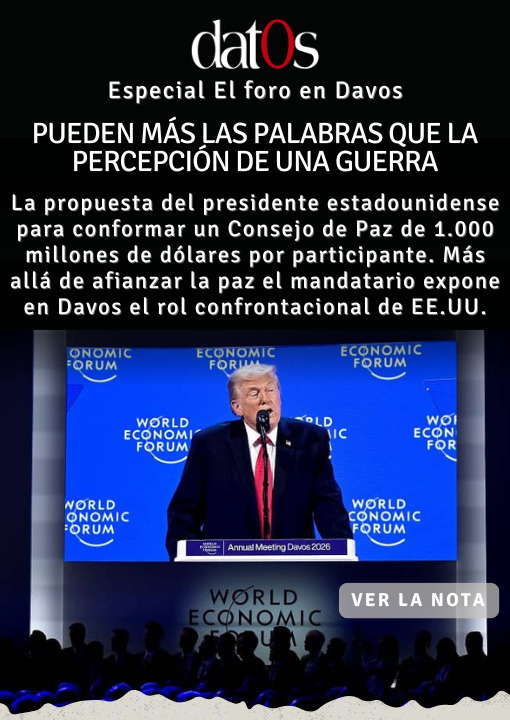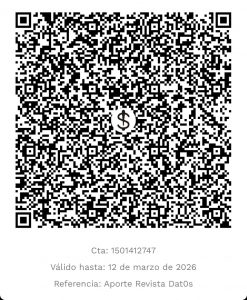Mercados y subsistencia Entrevista Madhu Viswanathan, profesor de Negocios de la Universidad de Illinois
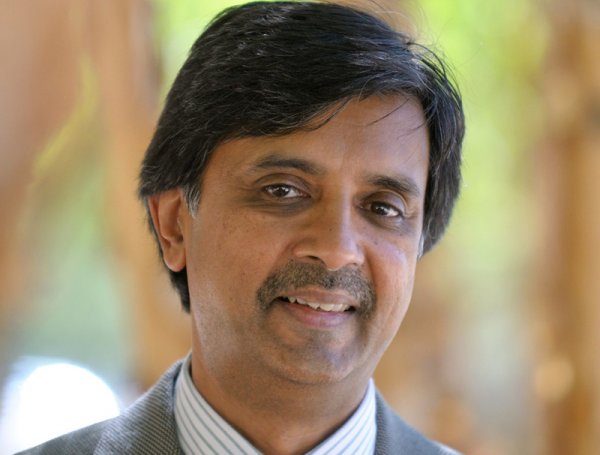
El profesor Madhu Viswanathan ha estado en el plantel docente de la Facultad de Negocios de la Universidad de Illinois, Urbana-Champaign desde 1990. Fue nombrado al prestigioso Profesorado: Diane and Steven N. Miller Profesor of Business. Su formación académica fue en Ingeniera Mecánica de la Indian Institute of Technology y su PhD es en Marketing de la Universidad de Minnesota. Sus áreas de investigación académica han sido en medición y metodología de la investigación, y en comportamiento de mercados de pobreza y subsistencia. Ha publicado libros y artículos en las más prestigiosas publicaciones de carácter científico-académico.
El Prof. Madhu fundó y dirige la “Subsistence Marketplaces Initiative”, donde ha creado sinergias únicas entre la investigación, la enseñanza, y las iniciativas sociales empresariales. Ha sido pionero en el diseño y diseminación de la educación sobre mercados de subsistencia. Por este prolijo trabajo ha recibido numerosos premios en las áreas de investigación, enseñanza, desarrollo de contenido, emprendimientos sociales, asistencia humanitaria, liderazgo, y educación internacional, entre otros. Su curso sobre Mercados de Subsistencia ha sido homenajeado como uno de los mejores cursos sobre emprendimientos por la revista, Inc. Magazine.
Es un gusto poder entrevistarlo para que nos hable de qué manera se introdujo en el tema de la investigación.
Hace 23 años empecé a mirar el problema social en EEUU, el cual es muy diverso en cuanto a la educación de las personas, en 1997 comencé a estudiar cómo esta gente desarrolla su vida desde un punto de vista micro y la diversidad que esta gente pobre representa socialmente. Lo primero que hay que aprender es cómo la gente percibe el mercado desde su vida cotidiana. Creamos foros y conferencias donde las personas comparten sus vivencias y percepciones: cómo entienden, sienten y operan sus problemas; porque esa es la forma como nosotros podemos entender el problema de la pobreza en un ambiente hostil.
El principal tema es la investigación, luego la ejecución, luego el impacto. Se crean espacios de discusión para las personas que luego se van a beneficiar aplicando lo que nosotros hacemos, esto ayuda a enriquecer el intercambio de opiniones entre gente pobre sin acceso a la educación y fundamentalmente mujeres que son cabezas de hogar.
Es vivencial no académico, esto me ayudó a descubrir que hay una impresionante habilidad que tiene la gente pobre para superar sus problemas dentro de muy diversos grados de educación; se hace una investigación sociológica, a partir de esto se establece una gran diversidad de las formas en que la gente interactúa entre sí, especialmente las mujeres.
Sabemos que usted es el promotor de la metodología Marketplace Literacy/Subsistence Marketplaces. ¿En qué consiste, desde cuándo la está implementando y qué resultados ha tenido?
Hay cuatro partes de lo que hacemos: la primera es la investigación a nivel de personas para observar como transan, cómo se comportan en el mercado; la segunda es crear foros para que la gente comparta sus experiencias; la tercera parte es la capacitación; y la cuarta la generación de emprendimientos a partir de su realidad y empresa social, hay una simbiosis muy grande.
Cuando se hace la investigación, se descubre que tienen muchos problemas para entender qué es el mercado. Lo más importante es generar educación de mercado, que sean capaces de entender el concepto de clientes, porque uno puede hacer negocios sin dinero, pero no puede hacer negocios sin clientes. En todos los programas de desarrollo que he visto a principios del milenio en el año 2000 siempre fue “cómo hacer negocios, pero no había ‘por qué tengo que hacer el negocio´”. Era entender el mercado, desde la parte menos humana. Lo que hacemos esencialmente es enseñarles a entender sus propias experiencias, la forma de aprender es la comunicación horizontal entre gente similar que tiene los mismos problemas. Hay gente que no tiene dinero y tampoco educación, pero puede articularse con otra gente y les va bien, solo el hecho de compartir estas vivencias con sus similares puede ayudarles a entender la problemática del mercado y la importancia del cliente.
Lo que les enseñamos no es nuevo, cómo les enseñamos es lo nuevo, les enseñamos cómo es ser cliente y cómo es ser vendedor. La gente anda obsesionada con el dinero pero puede hacer negocios sin necesidad de dinero. Nuestro enfoque es micro y viene de abajo, el tema del conocimiento es crítico a la hora de dinamizar el tema del mercado. No es simplemente hacer un intercambio de un bien o servicio por dinero, el tema es tener un enfoque mucho más humano del mercado, esto genera una dinámica distinta. Hay que entender el lado del cliente siempre: qué valor recibes como cliente, cómo tú puedes resolver un tema al cliente.
¿Cómo ha llegado a los países donde se trabaja con Marketplace, de qué manera se conectó y cuáles fueron los resultados?
Iniciamos este programa en la India, nos costó mucho llegar a 1.000 participantes mujeres, fuimos paulatinamente mejorando y depurando este enfoque. Entonces comenzamos a innovar a través de estas redes esencialmente. Es difícil llegar a ciertos objetivos cuantitativos grandes de escala mayor, si utilizamos solamente profesores, entonces utilizamos videos para llegar a más gente. Combinamos los videos con la interacción entre los diferentes foros, tenemos 14 módulos de videos. Ellos tienen que entender el concepto de cliente, darle mayor importancia, todo a nivel de transacciones micro. Si la pobreza es mayor, entonces se genera un problema de autoconfianza. Entonces, los tres elementos fundamentales para desarrollar el programa son conocimiento, habilidades y autoconfianza.
Era importante para nosotros seleccionar a los facilitadores en la India y decidimos que fuesen personas que conocían el problema de la pobreza. Después, fuimos a Tanzania, allí tenemos socios de una ONG local de mujeres, trabajamos con mujeres Masai y llegamos a tener 10.000 socias; siempre a través de conseguir socios locales y nosotros testear la metodología local y adaptarla para comenzar a trabajar de abajo hacia arriba. Es la forma en que nosotros obtenemos las mejores prácticas. Hemos trabajado también en Argentina y México, esencialmente con mujeres jóvenes y niñas potencialmente víctimas de abuso.
En EEUU trabajamos en áreas rurales de Illinois donde encontramos problemas de incorporación a los sistemas económicos; en Uganda con niños refugiados, esencialmente con mujeres refugiadas donde hemos llegado a tener 10.000 mujeres beneficiarias para incorporarlas al mercado.
En principio lo que tenemos que hacer es que la persona se envuelva en actividades que sean beneficiosas para las dos partes, que sea una situación de beneficio mutuo de este intercambio de relacionamiento en el mercado. Tenemos que aplicar mucha ética al relacionamiento económico, es fundamental que ambos salgan beneficiados. Mi objetivo fundamental es desarrollar aspectos humanos dentro de las transacciones de negocios. Esto tiene que estar en el corazón de la persona que tiene que ser éticamente buena y el intercambio justo.
El tema de las diferencias culturales y las diferentes formas de sentirse bien es importante, yo no entiendo casi nada de español, pero sí entiendo cuando veo la alegría, la satisfacción cuando escuchan los mensajes en su propio idioma, veo la imagen reaccionando tan positivamente, el sentimiento humano cuando te lo dicen en tu propio idioma. No importa la cultura yo veo los sentimientos y las emociones que son más duraderos que el propio relacionamiento comercial. Esto puede ser muy local, pero, mi esposa por ejemplo que atiende a personas carentes y ver la solidaridad que existe es absolutamente impresionante. Lo importante es ir de abajo hacia arriba, el mejor resultado es hacerlo desde abajo, esto es como mirar un iceberg. Cuando tú haces de abajo hacia arriba, tú ves el tamaño del iceberg. Tenemos un problema educativo en cómo hacer el método de arriba hacia abajo porque todo es jerárquico; entonces es más fácil entender lo que viene de arriba hacia abajo y es más difícil de construir lo que viene de abajo hacia arriba, nuestro enfoque es una aproximación humana a la pobreza no es economicista, es un enfoque muy ético y muy humano hacia el problema del desarrollo y la pobreza. Es hacer las cosas en el marco conceptual de una economía ética.
¿Bolivia está dentro de los planes para ingresar con Marketplace?
Siempre nos hemos encontrado con equipos locales para poder entender mejor los aspectos específicos de cada lugar y de esta forma nosotros podemos hacer una verdadera red, tenemos alrededor de 20 actividades en el mundo siempre a través de redes locales. Lo que hacemos es facilitarles la metodología para brindarles apoyo. No necesitamos tener visibilidad porque somos de abajo hacia arriba, generamos impacto en la población que nos interesa que son los de abajo, cuando encontramos por ejemplo personas como Yovanka Franco quien se hace cargo de un Club de Rotary en Bolivia con deseos de ayudar a personas que lo necesitan, entonces nosotros facilitamos toda nuestra tecnología.
Tememos para Bolivia Yovanka Franco, Cristina Azuara y Helena Olazeaga en México, Luis Chávez en Honduras. Ponemos mucho énfasis en que los programas son esencialmente locales ejecutados por socios locales para adecuarlos a su realidad y cultura. No tenemos respuestas a todas las preguntas, éstas se generan específicamente en cada lugar de acuerdo al país, sus costumbres y cultura.
¿Quiénes se harán cargo del proyecto “Subsistence Marketplaces Initiative” en Bolivia?
El ingreso fue a través de Mauricio Gonzales y Sylvia Ugalde Jewgieniew, asistente de la Gobernación de Distrito 6450 del Rotary Club Ohare de la ciudad de Chicago, constituyendo una alianza estratégica con Rotary Club Illimani de la ciudad de La Paz Bolivia, que tiene como Presidenta a YovanKa Franco quien con un equipo de mujeres ya capacitadas a la cabeza de Maddy Helen Mostajo, llevarán adelante el proyecto en Bolivia.
RESEARCH DATA
INTERVIEW
THEME: “MARKETS AND SUBSISTENCE”
GUEST: Madhu Viswanathan, Distinguished Professor, Business School, University of Illinois
CURRICULAR SUMMARY:
Professor Madhu Viswanathan has been on the faculty campus of the University of Illinois School of Business, Urbana-Champaign since 1990. He was appointed to the prestigious position of Diane and Steven N. Miller Centennial Chair of Business.
His academic background is a degree in Mechanical Engineering from the Indian Institute of Technology and a PhD in Marketing from the University of Minnesota. His areas of academic research have been in measurement and methodology of research, and in behavior of poverty and subsistence markets. He has published books and articles in the most prestigious scientific-academic publications.
Prof. Madhu founded and directs the “Subsistence Marketplaces Initiative”, where he has created unique synergies between research, teaching, and corporate social initiatives. He has been a pioneer in the design and dissemination of education on subsistence markets. For this work he has received numerous awards in the areas of research, teaching, content development, social entrepreneurship, humanitarian assistance, leadership, and international education, among others. His course on subsistence markets has been recognized as one of the best entrepreneurship courses by the magazine, Inc. Magazine.
1. As Research Data is dedicated to publishing topics related to social research, in this case it is a pleasure for us to interview him and we would like him to tell us how he was introduced to the topic of research.
22 years ago I began to look at the social problem in the United States, which is very diverse in terms of the education of people, in 1997 I began to study how these people develop their life from a micro point of view and I started to see the diversity that these poor people present socially. The first thing to learn is how people perceive the market from their everyday life. Then we create forums and conferences where people share their experiences and their perceptions, how they understand, how they feel and how their problems operate; because that is the way we can understand the problem of poverty in a hostile environment for the poor.
The main issue is the investigation then the execution, then impact, they begin to create forums discussion spaces for people who will benefit from applying what we do, this helps to enrich the exchange of opinions among poor people who do not have access to education and fundamentally women who in the end are heads of household.
It is experiential non-academic, this helped me to discover that there is an impressive ability that poor people have to overcome their problems within very different degrees of education, a sociological research is made, from this a great diversity of forms is established in which people interact with each other especially women.
2. We know that you are the promoter of the Marketplace Literacy / Subsistence Marketplaces methodology. We would like you to tell us about it, what it consists of when you are implementing it and what results you have had.
There are four parts of what we do: the first is people-level research to see how they behave in the market, the second is to create forums for people to share their experiences, the third part is training and the fourth the generation of ventures based on their reality and social enterprise, there is a very great symbiosis.
At the beginning when the research is done it is discovered that they have many problems to understand that the market is the most important thing is to generate market education that are able to understand the concept of customers, because one can do business without money but can not do business without clients In all the development programs that I saw at the beginning of the millennium in the year 2000 it was always “how to do business but there was not” because I have to do the business “was to understand the market but less human. What we do is essentially teach them to process – to understand – their own experiences, the way to learn is the horizontal communication between similar people who have the same problems. There are people who do not have a lot of money and no education but they can articulate with other people and they do well, just sharing these experiences with their peers can help them understand the problems of the market. You have to understand the importance of the client.
What we teach them is not new, as we teach them is new, we teach them what it is like to be a customer and what it is like to be a salesperson. People are obsessed with money but can do business without needing money. Our approach is micro and comes from below, the subject of knowledge is critical when it comes to boosting the subject of the market. (put a graphic that describes the 4 elements).
The issue is not simply to make an exchange of a good or service for money, the issue is to have a much more human approach to the subject of the market, this generates a different dynamic, you have to understand the customer side always; what is the value you receive as a client, how can you resolve a topic to the client?
3. Regarding the countries where Marketplace is being worked with as it has reached these, how it was connected and what the results were.
We started this program in India, it took us nine years to reach 1,000 women participants. We gradually improved and refined this approach. Then we started to innovate through these networks. It is very difficult to reach certain large quantitative objectives on a larger scale with teachers as this will require a lot of resources. Thus, we video-based approaches and sessions conducted by a facilitator to reach people. We combine the videos with the discussion and group assignments. Fundamentally they have to understand the concept of client giving greater importance to the client, all this at the level of micro transactions, if the poverty is greater then a problem of self-confidence is generated, then the three fundamental elements to develop the program are knowledge, skills and self-confidence.
It was important for us to select the facilitators in India and we decided that they were people who knew the problem of poverty and had lived it after, we went to Tanzania and there we had some partners of a local women’s NGO, we worked with Masai women and we left to have 10,000 members; always by getting local partners and we test the methodology locally and adapt it, and start working from the bottom up is the way we get the best practices. We have also worked in Argentina and Mexico mainly with young women and girls who are potentially victims of abuse.
In the USA we have worked in rural areas of Illinois where we have found problems of incorporation into the economic systems, in Uganda with refugee children in the largest camp in Uganda, essentially with refugee women where we have reached 10,000 women who have benefited from this program to incorporate them into the market.
In principle what we have to do is that the person engages in activities that are beneficial to both parties that is a situation of mutual benefit of this exchange of relationship in the market. We have to give a lot of ethics to the economic relationship is essential that both benefit, my main objective is to develop human aspects within business transactions. This has to be in the heart of the person as well as the activity. The person has to be ethically good and the exchange has to be fair.
The topic of cultural differences and different ways of feeling good is important, I do not understand almost any Spanish but if I understand when I see the joy, the satisfaction when they hear the messages in their own language I see the image reacting so positively, the feeling human when they tell you in your own language. No matter the culture, I see the feelings and emotions that are more lasting than the commercial relationship itself.
When we talk about impact on development but in the end the line is exactly the same, this can be very local but my wife, for example, who cares for the needy and see the solidarity that exists is absolutely impressive. The important thing is to go from bottom to top, the best result is to do it from below, this is like looking at an iceberg face down, when you do from the bottom up, you see the size of the iceberg. We have an educational problem on how to do the top-down method because everything is hierarchical; then it is easier to understand what comes from the top down and it is more difficult to build what comes from the bottom up, our approach is a human approach to poverty is not economistic, it is a very ethical and very human approach to the problem of development and poverty, this is really doing things in the conceptual framework of an ethical economy.
4. Bolivia is within the plans to enter with Marketplace.
We have always met with local teams to better understand the specific aspects of each place and this way we can make a real network. We have activities in few places in the world always through local networks from the bottom up, what we do is to provide them with the methodology and provide support. We do not need to have visibility because we are from the bottom up generating impact on the population that interests us. When we find, for example, people like Yovanka Franco who takes charge of a Rotary Club in Bolivia, with the desire to help people who need it, then we provide all our technology.
Like for Bolivia with Yovanka Franco, we have Cristina Azuara and Elena Olascoaga in Mexico, and Luis Chavez in Honduras.
We emphasize that the programs are essentially local, executed by local partners to adapt them to their reality and the culture of the beneficiary country. We do not have the answers to all the questions, these are generated specifically in each place according to the country, its customs and culture. Being bottom-up, we always start by learning about new contexts rather than think we have the answers.
5 You can tell us a little about who will take charge of the project in Bolivia as they plan to do it.
The opportunity was through Mauricio Gonzales and Sylvia Ugalde Jewgieniew, assistant of the District 6450 Governor’s Office of the Ohare Rotary Club of the city of Chicago, forming a strategic alliance with Rotary Club Illimani of the city of La Paz Bolivia that has as President a YovanKa Franco who with a team of women at the head of Maddy Helen Mostajo already trained will carry out the project in Bolivia

